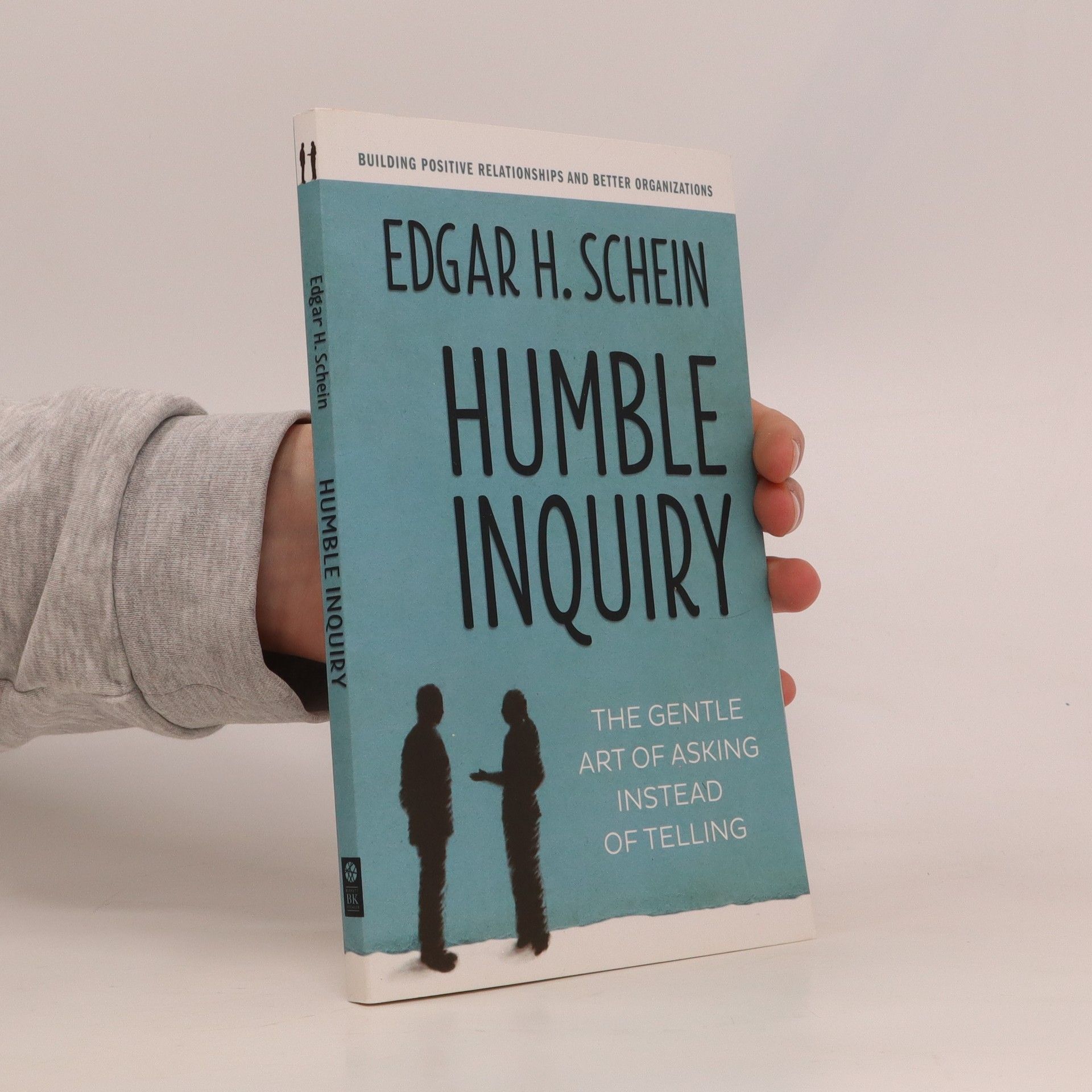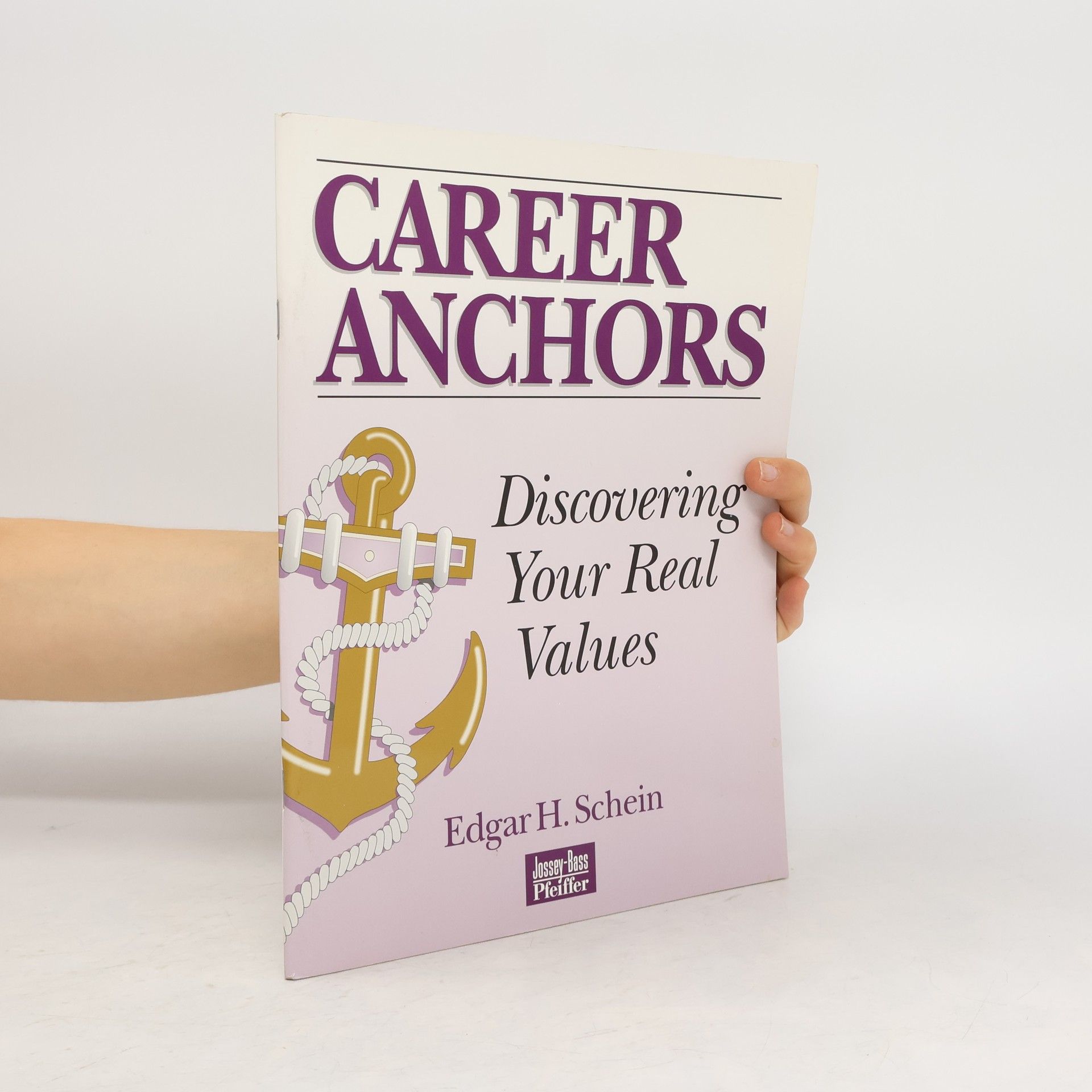A member of the PH OD Series! Volume II clarifies the concept of process consultation as a viable model of how to work with human systems as defined in the previous volume, Process Its Role in Organization Development (19 69), and introduces modifications and new ideas that elaborate on and have evolved beyond the material in the first volume. Included are such topics as cultural rules of interaction; initiating and managing change; intervention strategy; tactics and style; and emerging issues in process consultation.
Edgar H. Schein Boeken
Het uitgebreide onderzoek van Edgar Schein duikt in de ingewikkelde dynamiek van organisatiecultuur, procesconsultatie en de evoluerende aard van carrières. Hij analyseert nauwgezet hoe diverse culturele contexten – nationaal, organisatorisch en beroepsgericht – de organisatorische prestaties diepgaand beïnvloeden. Schein biedt kritische inzichten in het hulpverleningsproces binnen menselijke systemen, waarbij hij zowel consultants als managers begeleidt. Zijn werk biedt een kader voor het begrijpen en diagnosticeren van zowel individuele carrièrebehoeften als de complexe culturele landschappen die organisaties doorkruisen, met de nadruk op de praktische toepassing van zijn bevindingen.

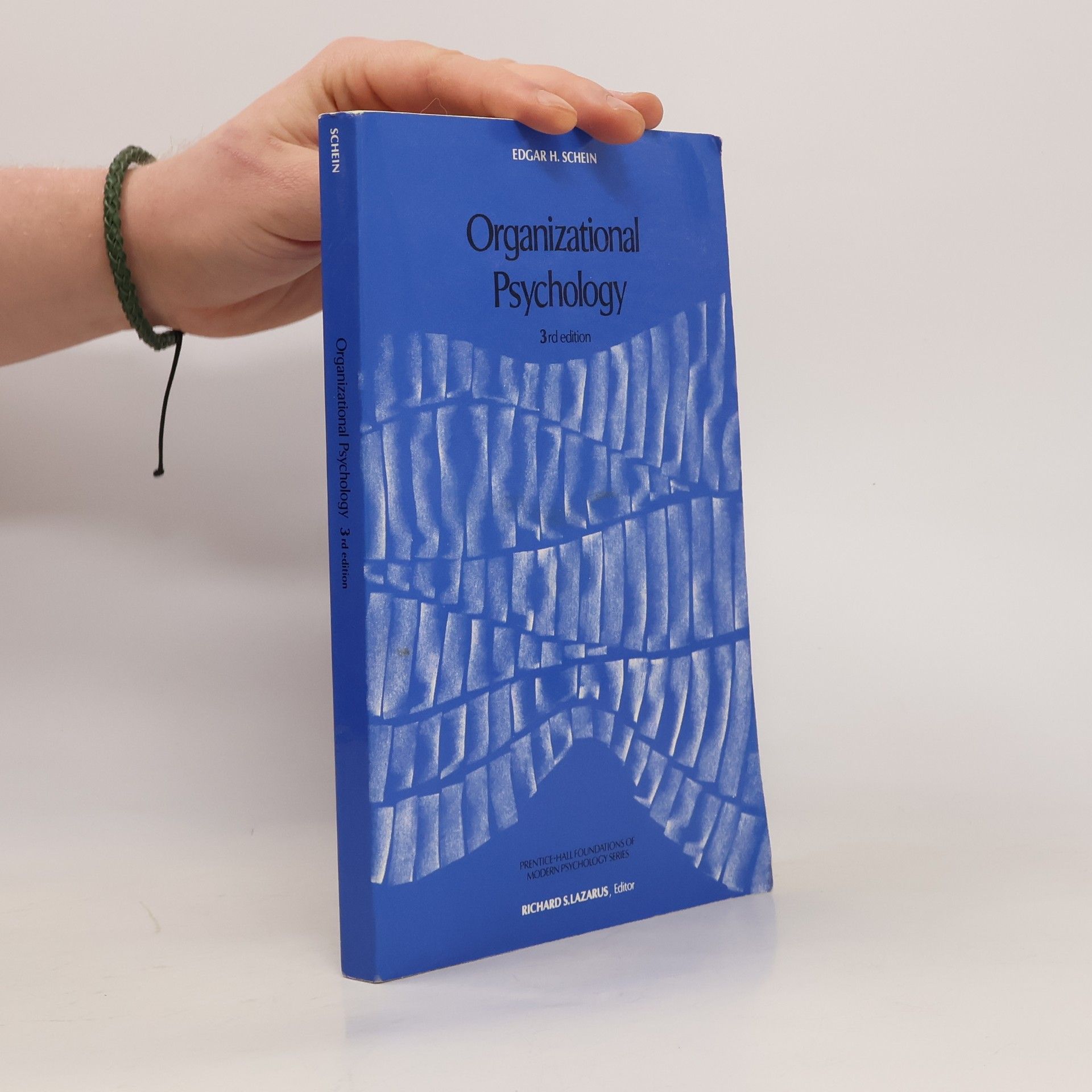
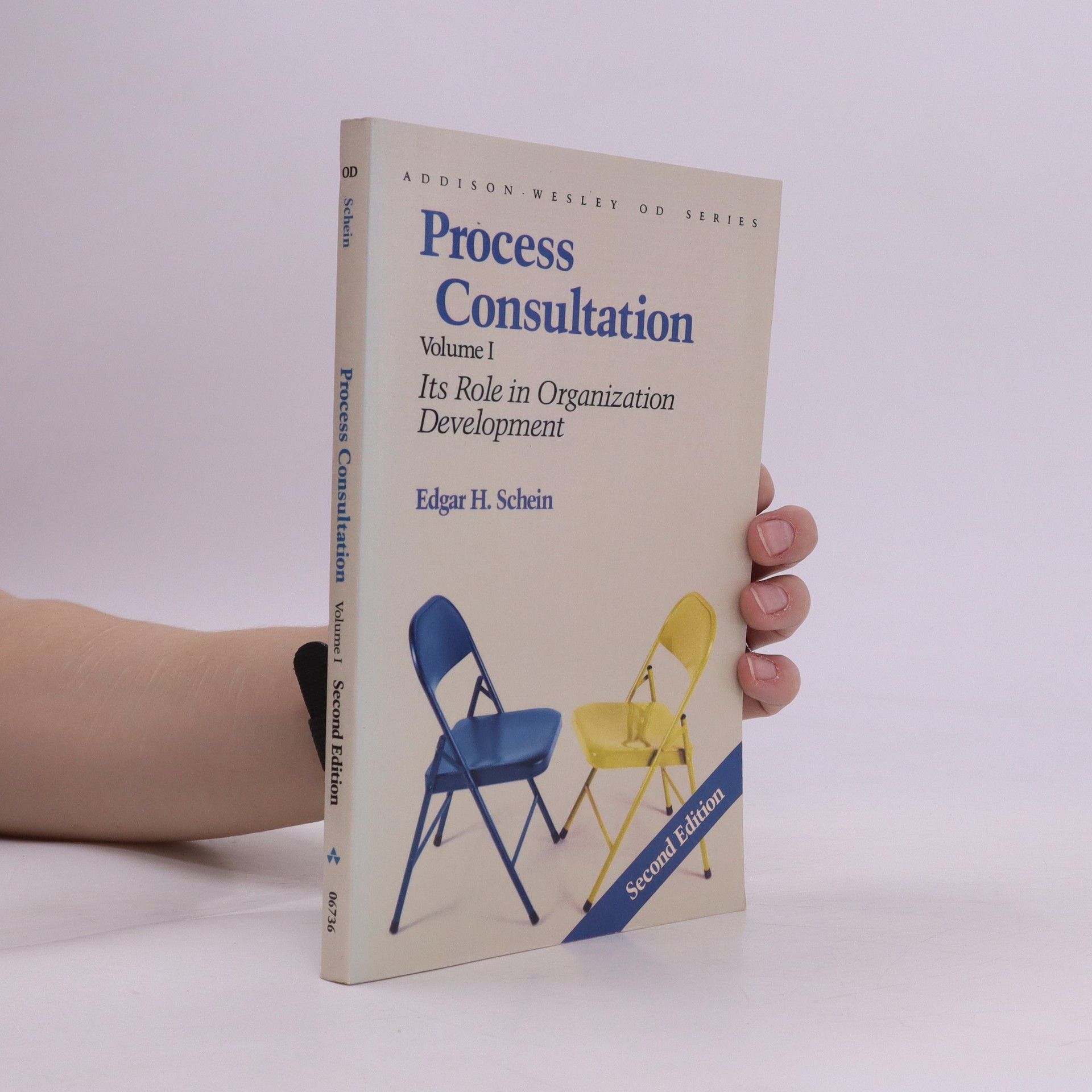
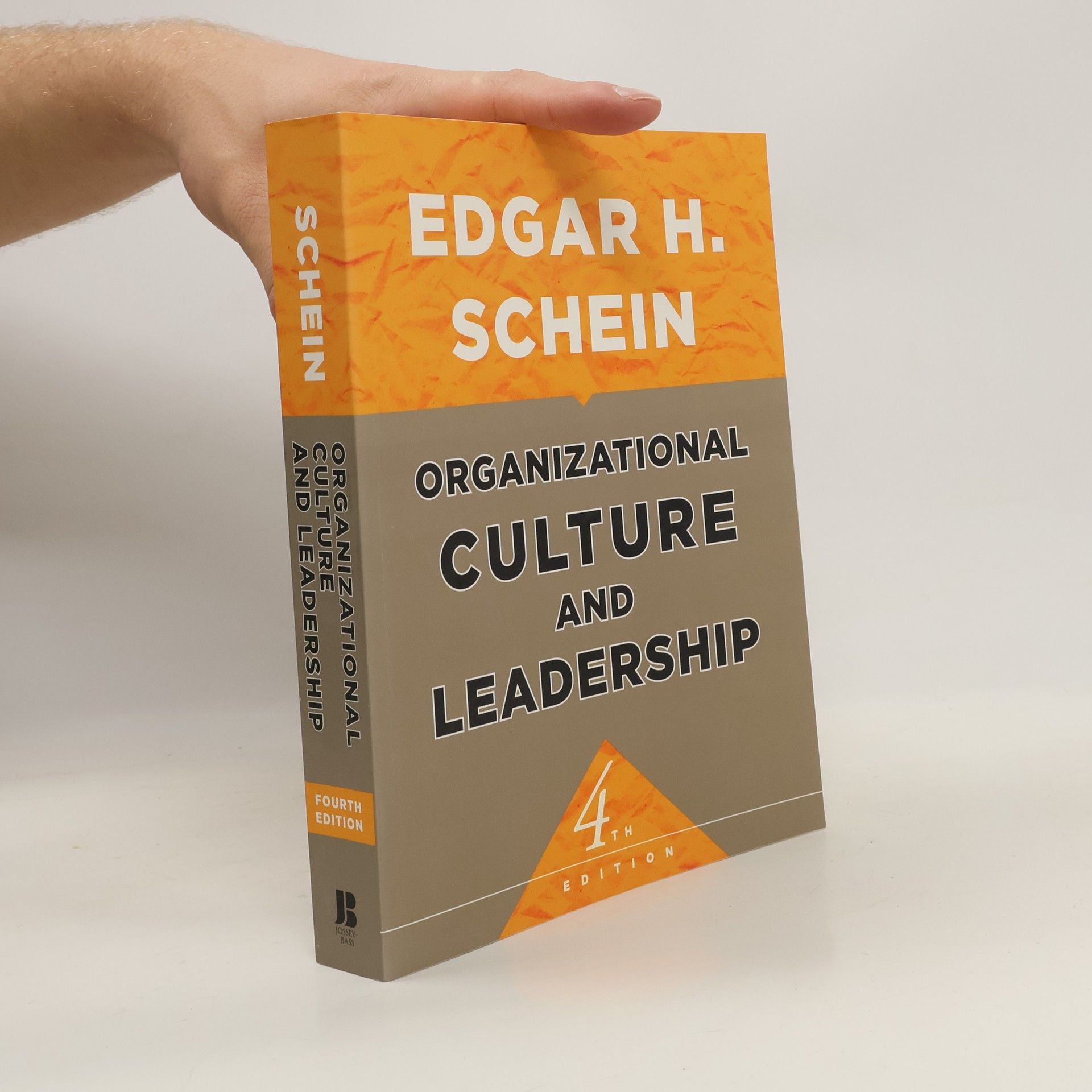
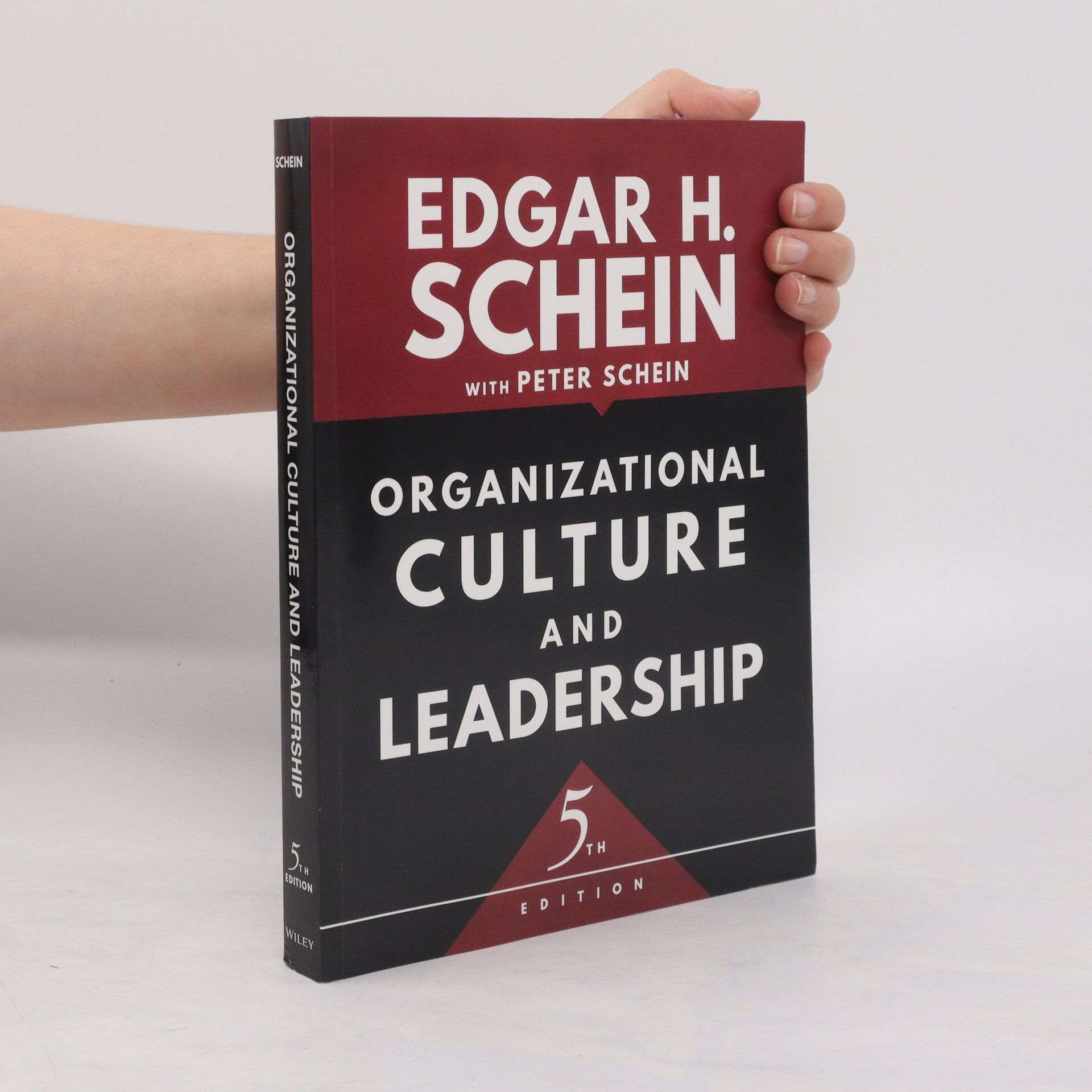
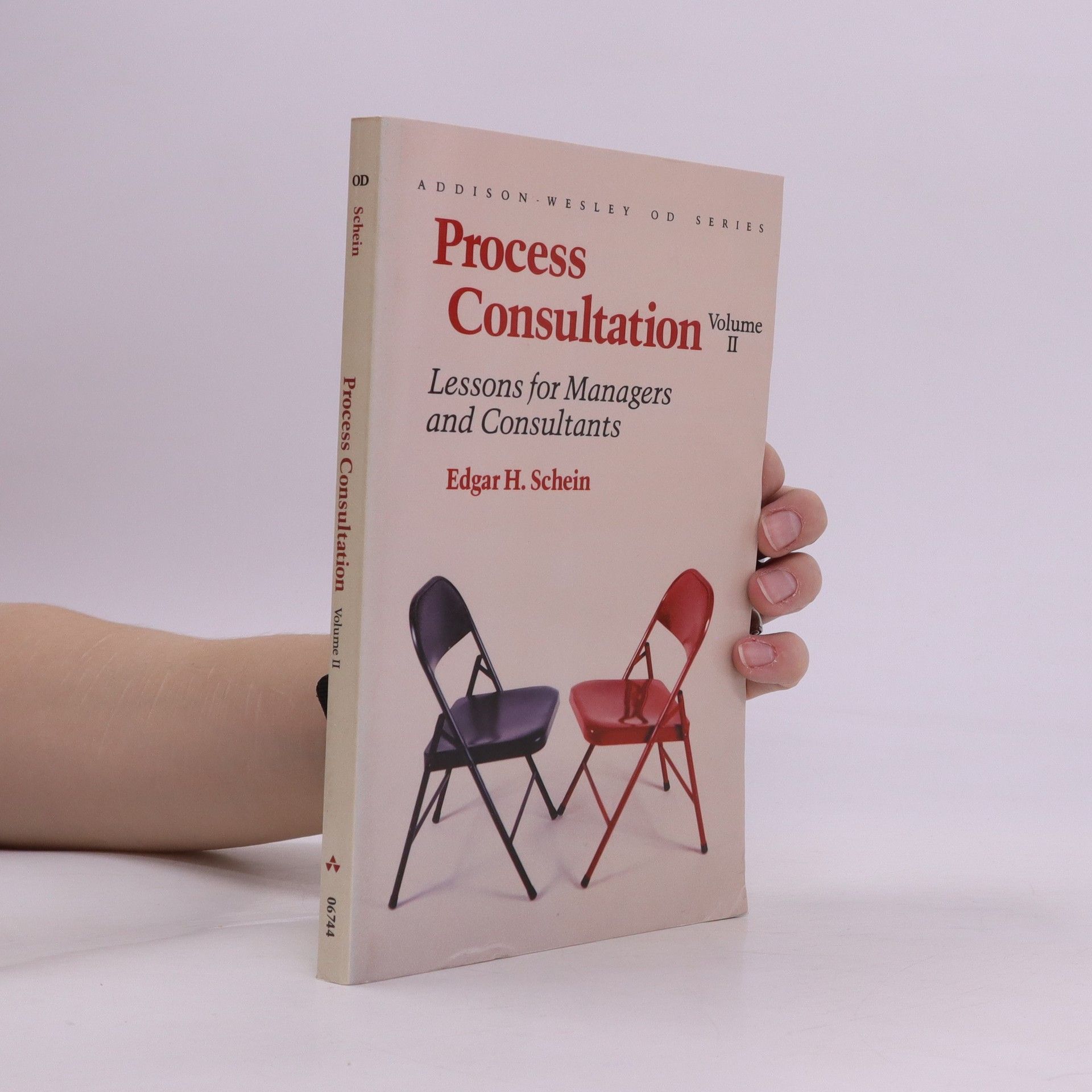
The book that defined the field, updated and expanded for today's organizations Organizational Culture and Leadership is the classic reference for managers and students seeking a deeper understanding of the inter-relationship of organizational culture dynamics and leadership.
Organizational Culture and Leadership
- 464bladzijden
- 17 uur lezen
Regarded as one of the most influential management books of all time, this fourth edition of Leadership and Organizational Culture transforms the abstract concept of culture into a tool that can be used to better shape the dynamics of organization and change. This updated edition focuses on today's business realities. Edgar Schein draws on a wide range of contemporary research to redefine culture and demonstrate the crucial role leaders play in successfully applying the principles of culture to achieve their organizational goals.
Process Consultation I. Its Role in Organization Development
- 204bladzijden
- 8 uur lezen
A member of the PH OD Series! How can you influence a situation in the workplace without the direct use of power of formal authority? This book shows you how by presenting the core theoretical foundations and basic prescriptions for effective management.
Written by an authority on organizational psychology, this interdisciplinary text can be used as a supplement in organizationsl behavior courses in departments of psychology and business.
Humble Consulting: How to Provide Real Help Faster
- 240bladzijden
- 9 uur lezen
Consulting in Complex and Changing Times Organizations face challenges today that are too messy and complicated for consultants to simply play doctor: run a few tests, offer a neat diagnosis of the “problem,” and recommend a solution. Edgar Schein argues that consultants have to jettison the old idea of professional distance and work with their clients in a more personal way, emphasizing authentic openness, curiosity, and humility. Schein draws deeply on his own decades of experience, offering over two dozen case studies that illuminate each stage of this humble consulting process. Just as he did with Process Consultation nearly fifty years ago, Schein has once again revolutionized the field, enabling consultants to be more genuinely helpful and vastly more effective.
Humble Inquiry; The Gentle Art of Asking Instead of Telling
- 123bladzijden
- 5 uur lezen
Communication is essential in a healthy organization. But all too often when we interact with people—especially those who report to us—we simply tell them what we think they need to know. This shuts them down. To generate bold new ideas, to avoid disastrous mistakes, to develop agility and flexibility, we need to practice Humble Inquiry. Ed Schein defines Humble Inquiry as “the fine art of drawing someone out, of asking questions to which you do not know the answer, of building a relationship based on curiosity and interest in the other person.” In this seminal work, Schein contrasts Humble Inquiry with other kinds of inquiry, shows the benefits Humble Inquiry provides in many different settings, and offers advice on overcoming the cultural, organizational, and psychological barriers that keep us from practicing it.
Humble Inquiry, Second Edition: The Gentle Art of Asking Instead of Telling
- 192bladzijden
- 7 uur lezen
"This new edition of the worldwide bestseller (over 200,000 copies sold and translated into seventeen languages) from two of the true giants in organizational culture studies offers 50% new content and a simple and effective technique for building more positive relationships, especially between people of different statuses"-- Provided by publisher
Discover a more agile, democratic, and effective model of leadership, from legendary business scholar Edgar Schein and Silicon Valley executive Peter Schein. Legendary organizational scholar Edgar Schein and former Silicon Valley executive Peter Schein say leadership today requires that people transcend their hierarchical roles and relate to each other as human beings--what they call humble leadership. In such relationships new ideas can flow freely, mistakes can come to light immediately, and course corrections can be made in real time rather than "by committee" or by order of the lone heroic CEO. This second edition includes three new chapters. Chapter 1 zeros-in on the Schein's actionable definition of leadership--relative to management and administration--focused on leading people toward "new and better." Chapter 2 introduces the concept of "situational humility"--leaders now need to shift between several types of relationships to deal with the accelerating complexity of a supply-constrained, "quiet-quitting," and "two-days-in-the-office" world. And Chapter 5 explains how to create a culture of humble leadership. Illustrated with examples from healthcare, government, the military, tech, and more, this is a compact, accessible guide to a leadership paradigm far better suited to a world that demands fast, nimble response to change, and a workplace hungry for mutual respect and trust.
Career Anchors
Discovering Your Real Values
In many cases, people select a career for all the wrong reasons, and find their responses to the workplace are incompatible with their true values. This situation results in feelings of unrest and discontent and in lost productivity. To help people avoid these problems, the newly-revised Career Anchors is designed to help people uncover their real values and use them to make better career choices. This revised edition includes two new sections, "Major Stages of the Career" and "Career Movement, Progress, or Success." Instructions and other components have been revamped for clarification, the references have been updated, and the contents have been rearranged for more convenient usage in classes and workshops. Career Anchors can help you think through your career options and give you a clear understanding of: * Your own orientations toward work * Your motives * Your values * Your talents The Career Anchors Instrument and Trainer's Manual provide a systematic way of exploring how you perceive yourself, based on your own experiences. The instrument is divided into three parts?the orientations inventory, the career anchor interview, and the conceptual material. Career Anchors will help people: * Define the themes and patterns dominant in your life * Understand your own approach to work and a career * Provide reasons for choices * Take steps to fulfill your own self-image
